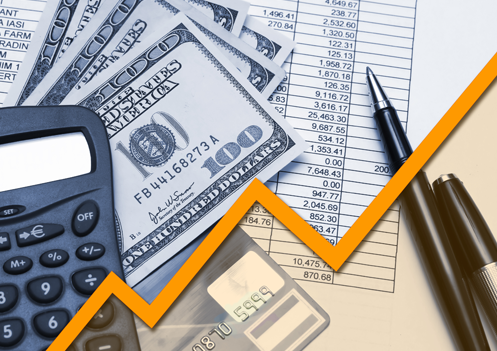If you just overdid it on the holiday spending, please do your very best to buckle down and pay off the balance as quickly as possible to avoid rising interest rate charges.
Credit card interest rates have always been high. But now they are getting even worse. The average interest rate for card holders with a balance is now nearing 15%. A year ago, it was below 14%. And you need to understand that it’s not likely to stop at 15%.
Credit card interest rates are tied to a benchmark index, which in turn is impacted by what’s going on with short-term interest rates in the U.S. And my friends, as I have long warned, short-term interest rates are finally creeping up.
The Federal Reserve has a big say in the direction of short-term interest rates. It controls the Federal Funds rate, and when the Fed changes the Federal Funds rate, other interest rates follow suit. Including the key interest rates that your credit cards are tied to.
From the financial crisis through most of 2015, the Federal Reserve kept its Federal Funds rate near zero, as a way to encourage banks to lend more money. But that is far from normal. And beginning in late 2015 the Fed has been ever so slowly raising the Federal Funds rate. It has risen about one percentage point since late 2015, and the Fed is telling us it intends three more rate hikes this year.
That means credit card rates will be moving higher as well.
Some pay down strategies:
• Use excess emergency savings. You know I want you to have eight months of living costs saved up. But if your emergency cash fund is bigger than that, you should consider using the excess to pay off credit card debt that is costing you plenty. Using cash that is maybe earning 1% or so to pay off a debt that is costing your close to 15% is a smart investment. My only caveat to this strategy: Please resolve to not turn around and run up a new credit card balance you can pay off in full each month. It makes no sense to use emergency savings if you are just going to go ahead and create a new emergency.
• Consider a balance transfer. If you have a FICO score of 740 or higher, you may be able to qualify for a new credit card that will charge you zero percent interest for a year or longer when you transfer your balance over to that card. A quick web search for “balance transfer credit card deals” will get you to websites that list the best current options.
Read the fine print very carefully. You want to make sure you don’t do anything to nullify the offer. Such as being late with a payment.
A balance transfer only makes sense if you simultaneously sit down and figure out a spending plan that will give you enough cash to pay off the balance before the zero rate expires. And be aware that any new charges on your new card will likely be charged a much higher “normal” rate if you don’t pay it off. But that’s not going to be an issue, right? Because 2018 is the year you live within your means, and below your needs. C’mon, I know you can do it!
Top Resources for You

The Ultimate Retirement
Guide for 50+
Learn More

MUST HAVE® Documents
Online Program
Learn More






